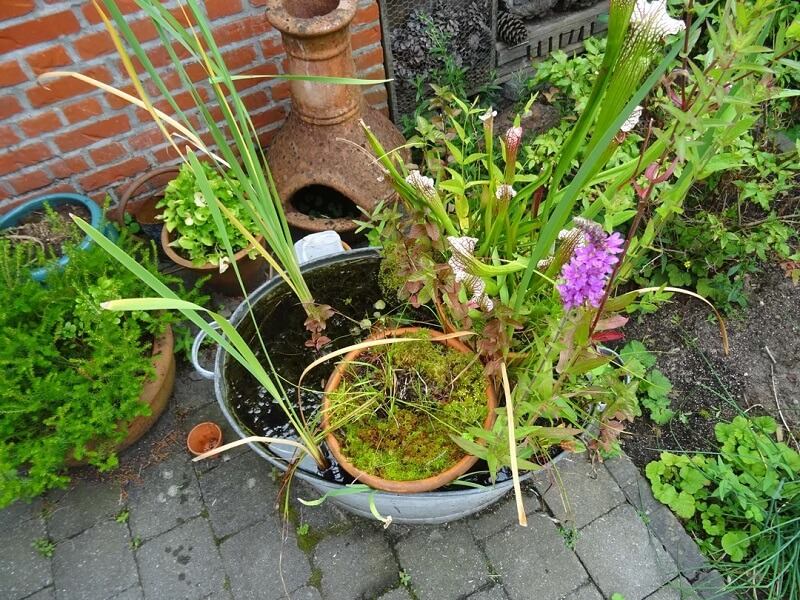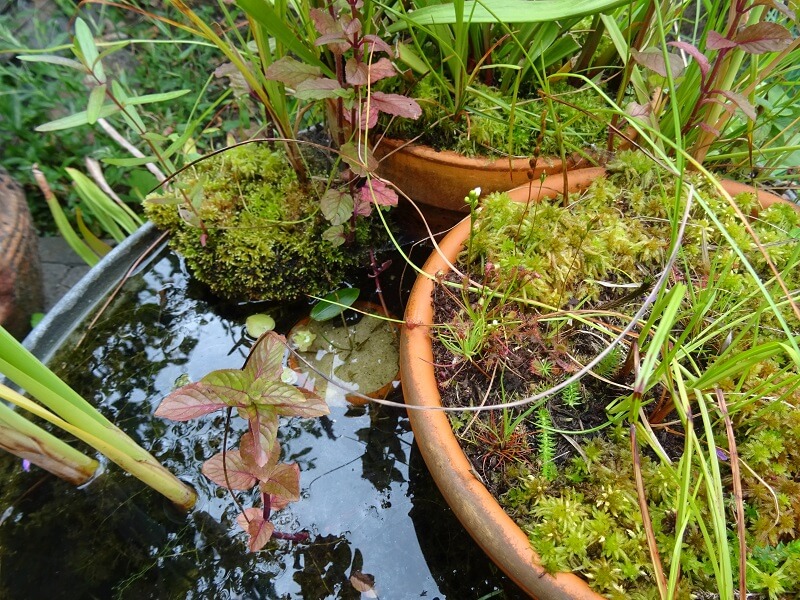As you browse your local nursery, it's easy to become overwhelmed by options of which plants to buy and how to grow them.
However, you can dramatically narrow down your choices (and make life easier for yourself) by focusing on native plants that naturally grow in your region.


For example, one gardener shared photos on Reddit of a native plant setup consisting of a raised bog, transition mires, and oligotrophic standing water.
The gardener, who lives in Zone 8, provided details about the zinc tub and rainwater setup to r/GardenWild.
"Some of the plants are doing ok in this nutrient-poor environment, but they would grow much better in a more nutrient-rich soil (e.g., broadleaf cattail and frog-bit)," the original poster explained. "It is interesting to see how these plants react to this."
The gardener provided a detailed list of plant species in the lower land area, terracotta pot/bog zone, and water zone, along with notes about what is growing well and what is struggling due to nutrient levels.
Although this garden is experimental, it is still beneficial in supporting local wildlife and offering natural beauty without unnecessarily draining resources. Other Redditors worldwide are learning from the original poster's wildlife plant recommendations and are inspired to pursue their own natural gardening efforts.
For example, planting a natural lawn has many benefits, including saving money on watering costs and reducing chemical exposure by eliminating common pesticides. If you're looking to rewild your outdoor space, your local nursery staff should be able to point you in the right direction, and Wild Ones' guide to creating your own native garden is another helpful place to start.
"Really awesome species selection!" one Reddit user wrote in the comments. "Typha latifolia and others can get really big, but the low-nutrient water might just keep them in check; very interesting!"
"Looks awesome!!" a Redditor admired. "Much more interesting than a typical cultivated flower pot."
The original poster replied, "Yes indeed, I absolutely recommend everyone to make something like this yourself."
Join our free newsletter for easy tips to save more and waste less, and don't miss this cool list of easy ways to help yourself while helping the planet.









